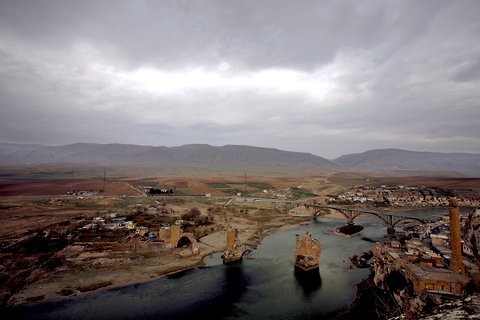By Soner Cagaptay, Hale Arifagaoglu and Cansin Ersoz
Commentary by
The Justice and Development Party (AKP) rose to power in Turkey in 2002, introducing new social, political and foreign policy currents throughout Turkish society. Reports indicate that under the AKP’s guidance, Turkey is becoming more conservative. While social conservatism is not in itself a problem, a government-enforced conservative transformation of society directly contradicts the concept of liberal democracy.
A recent study by Binnaz Toprak of Bahcesehir University in Istanbul, titled “Being Different in Turkey,” sheds light on the AKP’s role in consolidating conservatism across Turkish society. The study writes, “Social conservatism in Turkey is creating an environment of discrimination against secular and liberal Turks, particularly women.” For many years, people defined conservative Turks as the “other” Turkey, as a group facing discrimination. However, this study proves the existence of an “other other:” liberal and secular Turks outside the big cities’ middle class neighborhoods who now face discrimination by the government’s bureaucrats and employees.
This research shows that government-appointed bureaucrats rely on self-defined conservative social norms, such as the wearing of modernist Islamist-style headscarves (“turban”) and disdain for alcohol, as benchmarks for making appointments and promotions and handing out government contracts. Last year in Istanbul, a young woman of mixed Muslim-Greek Orthodox heritage applied for a job with an AKP-controlled Istanbul city government branch. As described to one of the authors of this piece, in her job interview the woman was told the AKP government would hire her if she agreed to wear a turban. When she responded that she was also Greek-Orthodox, she was told, “You don’t need to convert; all you have to do is cover your head.”
Alcohol is another case in point: although the AKP leadership is known for its disdain for alcohol, the Turkish people are divided on this issue, with some who believe that drinking alcohol is a sin according to Islam while others believe it is not. While the debate continues, the AKP is implementing policies to make alcohol exorbitantly expensive and therefore out of reach for many Turks. The issue at stake in Turkey is not whether the government promotes or condemns drinking, nor is it defending one’s right to get drunk. Rather, given that Turkey is a Muslim majority society, embodies diverse religious and cultural attitudes toward drinking and is also a democracy, the issue at stake is maintaining the notion that citizens in a liberal democracy are free to choose for themselves.
For starters, the AKP’s tax hikes against alcoholic beverages do not appear to be connected to a drinking problem in Turkey. In fact, Turkey has had traditionally low alcohol consumption rates. According to data provided by the World Health Organization, in 2003 Turkey’s per capita alcohol consumption rate was 1.4 liters per year. For that same year, this amount was 10.9L in Belgium and 9L in neighboring Greece. Even Qatar had higher per capita alcohol consumption rates than Turkey, at 4.4L per capita.
Despite Turkey’s traditionally low alcohol consumption rates, after it came to power in June 2002 the AKP adopted a taxation regime called the Special Consumption Tax for alcoholic beverages. Prior to this, Turks had been paying only an 18 percent value-added tax on alcoholic beverages. The new SCT was set at around 48 percent of the cost of alcoholic beverages. The rate then skyrocketed, with the SCT reaching 63 percent in 2009. The AKP came under fire for this policy, and in 2010 SCT on some alcoholic beverages, such as wine, was eliminated. Yet at the same time, lump sum taxes on wine were raised, compensating for SCT’s elimination. The lump sum tax on a bottle of wine rose from 1.30 Turkish Liras to 2.44 TL in 2010.
On October 28, SCT per liter of raki (Turkey’s most popular drink) was increased again to 51.5 TL from 39.6 TL. This means that Turks now have to pay around $35 per liter bottle of raki. Compare this with a minimum monthly income of around $500 in Turkey, and it becomes clear how exorbitantly expensive and unaffordable drinks have become under the AKP.
Such disdain is not without consequences: on September 21, visitors at an art gallery in Istanbul were attacked for drinking alcohol. All people arrested after the incident were released hours later.
The AKP’s alcohol policy is a case study in Turkey’s social transformation. The party is changing Turkey not by changing laws but through administrative measures and by enforcing selective cultural values on the country. The AKP’s drive for social change is diminishing citizens’ right to choose, leading society toward “enforced conservatism.”
Soner Cagaptay is a senior fellow at the Washington Institute for Near East Policy. Hale Arifagaoglu is a research assistant at the Institute and Cansin Ersoz was a research intern at the Institute in 2009-2010.This commentary first appeared on bitterlemons.org, an online newsletter.
via The Daily Star – Opinion Articles – Turkey’s ruling party is imposing change.
